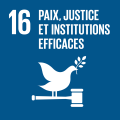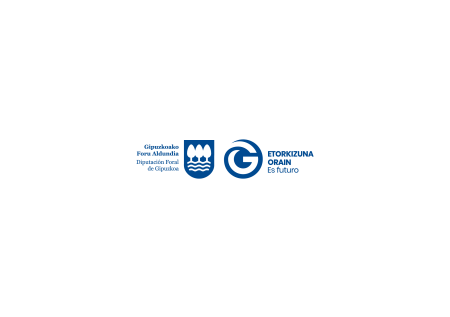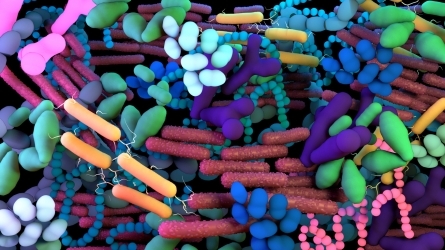
Democracy and Governance: how to deal with the crisis of democracy?
Description
The current global development model has created new conditions for the construction of economic, social and political realities. This reality that basically emerged with the technological revolution in the second half of the 20th century has had a decisive impact on liberal democracies in the west.
The consequences of the current global development model are quite clear: environmental unsustainability, a geostrategic struggle for natural resources, increasing social inequalities, concentration of activity in large cities, enormous difficulties in maintaining the welfare state, migratory movements, the digital divide and societies that are more diverse and complex; and in which values, types of relationships and social activity in general are conditioned by consumer society and individualistic values. Each transformation crisis means the end of one thing and the start of another and produces processes of decline, emergent processes, fear, uncertainty and…. opportunities.
Faced with this situation there are some people who want go back to a house that no longer exists and people who call for the need to institutionalise new structures that provide responses to future needs. Collaborative Governance aims to achieve the kind of democratic rapprochement that makes it possible to bring together the political community and reinforce the capacity for collective action.
As against the idea of power being exercised exclusively, collaborative governance means redefining new spaces for deliberation and decision-making (without the legitimacy of democratic representation being weakened) that involves new actors (both from organised society and individuals); it also involves the creation of a new political culture in which cooperation produces more social capital (trust) and self-responsibility that allows for the creation of wide-ranging systems aimed at the development of public policies that cannot be addressed exclusively by the civil service due to the complexity required to tackle a specific mission (for example, the fight against the effects of climate change or the development of a competitive system in a territory). We need to create new spaces to think about, decide and address public policies.
In this Summer Course we will debate about the crisis of democracy, about the challenges faced by the civil service in the current context and we will delve deeper into the concept of Collaborative Governance as a strategy to strengthen the space for deliberation and the democratic action of public institutions. To do this, as well as the case of ETORKIZUNA ERAIKIZ launched by Gipuzkoa Provincial Council we will also have the opportunity to learn about other Collaborative Governance strategies.
Objectives
Analyse the new position of the public administration with regard to the crisis of democracy and the management of current political agendas.
Share new legitimising elements of public administration in line with contemporary circumstances and social demand.
To offer an international vision of processes and methodologies that reflect their adaptation to new realities.
Activity directed to
- All public
- University student
- Teachers
- Professionals
Organised by
Program
01-06-2023
Registro / Erregistroa
“Apertura institucional / Irekiera Instituzionala“
- Eider Mendoza Larrañaga | Gipuzkoako Foru Aldundia / Diputación Foral de Gipuzkoa - Gobernantzako Diputatua
- Eva Ferreira Garcia | UPV/EHU - Rectora / Errektorea
“Retos para la regeneración democrática“
Diálogo entre:
- Fernando Vallespín Oña | Universidad Autónoma de Madrid - Catedrático de Ciencia Política
- Alfonso Unceta Satrústegui | UPV/EHU - Catedrático de Sociología
“Challenges for public governance in times of uncertainty“
Dialogue between:
- Geert Bouckaert | Universidad de Lovaina - Catedrático de Administración Pública en el Instituto de Gobernanza Pública
- Maria Jose Canel Crespo | Universidad Complutense de Madrid - Catedrática de Comunicación política y del sector público
Pausa-café
“La colaboración entre el Gobierno y la sociedad“
- Luis Fernando Aguilar Villanueva | Universidad Autónoma Metropolitana de México - Investigador Nacional Emérito
Round table: “Politika publikoen berrikuntza esperimentazio aktibotik abiatuta “
- Olatz Errazquin Amiano | Gipuzkoako Foru Aldundia / Diputación Foral de Gipuzkoa - Etorkizuna Eraikiz Zerbitzuburua (Moderator)
Hurrengo hizlarien arteko mahai-ingurua:
- Alazne Alberdi Alvaro | The Australian Centre for Social Innovation (TACSI) - Investigadora
- Ainhoa Arrona Etxaniz | Orkestra Instituto Vasco de Competitividad - Deusto - Investigadora
- Natalia Restrepo Montoya | Sinnergiak - Investigadora
- Naiara Goia Imaz | Arantzazulab - Directora
02-06-2023
“Nola landu Lankidetzazko Gobernantza “
Acción Learnig: EKINEZ IKASIren esperientzia
- Ander Arzelus Aramendi | Gipuzkoako Foru Aldundia / Diputación Foral de Gipuzkoa - Responsable de Acción Exterior
“Nola landu Lankidetzazko Gobernantza “
Acción Research: ETORKIZUNA ERAIKIZeko Think Thank-aren esperientzia
- Miren Larrea Aranguren | Orkestra Instituto Vasco de Competitividad - Investigadora
“Nola ebaluatu Lankidetzazko Gobernantza “
ETORKIZUNA ERAIKIZen ebaluazioa
- Sebastian Zurutuza Mujika | Gipuzkoako Foru Aldundia / Diputación Foral de Gipuzkoa - Director de Estrategia
Pausa-café
“Experiencias de Gobernanza Colaborativa a nivel internacional“
Balance de experiencias colombianas en materia de Gobernanza colaborativa
- Carlos Valencia Garcés | Pontificia Universidad Javeriana - Director del Centro Javeriano de Competitividad Empresarial
Experiencia de Gobernanza colaborativa Proyecto TROPICO
- Vicente José Pina Benchomil | Universidad de Zaragoza - Catedrático de Economía Financiera y Contabilidad
“How to turn your Idea into an Opportunity: Introduction to the DYME Methodology“
- John Dobson | Clark University (EE.UU) - Profesor titular de emprendimiento
- Gilmer Yovanni Castro Nieto | Pontificia Universidad Javeriana (Colombia) - Profesor de Emprendimiento
“Funtsezko ikaskuntzak, lankidetzazko gobernantzaren esperimentaziotik abiatuta, ondorio gisa“
- Xabier Barandiaran Irastorza | Gipuzkoako Foru Aldundia / Diputación Foral de Gipuzkoa - Diputatu nagusiaren aholkularia
Directors
Xabier Barandiaran Irastorza
Responsable de Estrategia de Etorkizuna Eraikiz
Adviser to the General Deputy of Gipuzkoa and one of the main promoters of the development of Etorkizuna Eraikiz. He is a Doctor in Sociology and Full Professor at the Faculty of Social and Human Sciences of the University of Deusto.
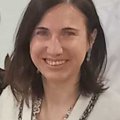
Olatz Errazquin Amiano
Gipuzkoako Foru Aldundia
Licenciada en Derecho (UPV/EHU) y Máster en Dirección y Administración de Empresas (Mondragón). Ha trabajado como consultora asistiendo a organizaciones en la planificación estratégica y la reflexión prospectiva. Desde 2021, como jefa de servicio de Etorkizuna Eraikiz, ha contribuido al desarrollo y puesta en marcha de esta reforma del Gobierno.
Speakers
Luis Fernando Aguilar Villanueva
Es Investigador Nacional Emérito (México) en el área de Políticas Públicas y Gobernanza Pública.

Alazne Alberdi Alvaro
The Australian Center for Social Innovation
Es licenciada en Ingenieria de Diseño Industrial. Ha sido profesora / investigadora de Diseño Industrial en la Universidad de Mongragón, desde 2017 es investigadora en The Australian Centre for Social Innovation (TACSI).

Ainhoa Arrona Etxaniz
Orkestra
Es investigadora en Orkestra - Instituto Vasco de Competitividad, Fundación Deusto. Como investigadora centrada en la interacción investigación-política, políticas públicas, estrategias territoriales y gobernanza colaborativa para el desarrollo regional, participa desde 2019 en procesos de investigación-acción de Etorkizuna Eraikiz.

Ander Arzelus Aramendi
Gipuzkoako Foru Aldundia. Diputatu Nagusiaren Kabinetea
Es licenciado en Ciencias Económicas por la Universidad de Deusto y experto en ordenación del territorio. Fue vicepresidente de Cruz Roja de Gipuzkoa durante nueve años, y desde 1992 es jefe del servicio técnico del Gabinete del Diputado General en la Diputación Foral de Gipuzkoa. En los últimos años ha participado en el comité de dirección de Etorkizuna Eraikiz.

Geert Bouckaert
Es profesor del Instituto de Gobernanza Pública de la Universidad de Lovaina (Lovaina, Bélgica). Es profesor honorario en el Institute for Innovation and Public Purpose, University College London, y profesor visitante en la Universidad de Potsdam.
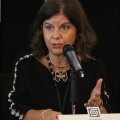
Maria Jose Canel Crespo
Es profesora de Comunicación Política y del Sector Público en la Universidad Complutense de Madrid y se centra en los recursos intangibles (confianza, compromiso, legitimidad y sostenibilidad). Ha sido facilitadora de iniciativas de aprendizaje activo en Etorkizuna Eraikiz y ha asesorado en sus procesos de escucha interna y externa.

Gilmer Yovanni Castro Nieto
Ph.D. en Economía y Dirección de Empresas, Especialista en Gestión de la Información, Competitividad y Desarrollo Regional. Licenciado en Administración Comercial y Licenciado en Administración Financiera. Ha ejercido la gerencia en proyectos empresariales, implementando modelos de gestión basados y centrados en las personas, así como también ha realizado numerosas publicaciones relacionadas con investigaciones sobre ciclo de vida de las organizaciones, la RSC, los valores, el liderazgo, marketing , la calidad de servicio y la comunicación. Actualmente es Profesor-investigador asociado de la Facultad de Ciencias Económica y Administrativas de la Pontificia Universidad Javeriana, miembro del consorcio de Inteligencia Emocional del País vasco, colaborador del Centro Javeriano en competitividad, Miembro de la Junta directiva de la Revista Javeriana, Miembro del directorio del "Institutie DYME" además es consultor y asesor organizacional en procesos estratégicos de transformación y gestión empresarial. Sus áreas de interés son Ciclos de Vida de Crecimiento de las Organizaciones, Emprendimiento e Innovación, Liderazgo (paradojas de liderazgo), Inteligencia Emocional en la Empresa, Sostenibilidad Empresarial y Calidad del servicio.
John Dobson
Profesor titular de emprendimiento en Clark University (EE.UU) es el fundador del instituto DYME, que utiliza enfoques de aprendizaje basados en problemas para ayudar a los estudiantes a desarrollar sus habilidades empresariales. Antes de incorporarse al mundo académico, John fue emprendedor. Todos los años lleva a cabo múltiples misiones de aprendizaje-servicio en países en desarrollo para ayudar a comunidades marginadas a utilizar sus habilidades empresariales para mejorar su vida.
Naiara Goia is the managing director at Arantzazulab. Since autumn 2020, she has been responsible for designing, implementing and developing the Social Innovation Laboratory. She is an expert in innovation with 20 years of experience in the area, leading complex strategic projects with international dimension and in the management of multidisciplinary teams. Before starting Arantzazulab, she managed different initiatives in the field of technological and social innovation at MONDRAGON Corporation. Some of her interests, and the basis of her work, are governance and democracy innovation, promoting networking and building transformation strategies. She participates in several forums on the future of the Basque Country and collaborates with several universities as a speaker and lecturer. Naiara holds a masters degree in Telecommunications Engineering (UPV/EHU - ENST Bretagne) and an MBA in business management. She has complemented her professional career with various training courses in Open and Collaborative Governance (UNED), Leadership, Public Communication and Process Evaluation, to name a few.
Miren Larrea Aranguren
Es investigadora principal en Orkestra-Instituto Vasco de Competitividad y redactora jefe de International Journal of Action Research. Tiene experiencia como facilitadora de procesos de investigación-acción para el desarrollo territorial. Coordina el equipo de investigación-acción de Etorkizuna Eraikiz Think Tank.

Vicente José Pina Benchomil
Catedrático de Economía Financiera y Contabilidad de la Universidad de Zaragoza. Ha sido investigador visitante en la Universidad de Strathclyde, Glasgow (Reino Unido). Ha sido director y participante de varios proyectos de investigación nacionales sobre reformas financieras en España y en la Unión Europea. También ha llevado a cabo contratos de investigación con el Tribunal Nacional de Cuentas y con varias Cámaras de Cuentas regionales. Ha ganado varios premios de investigación nacionales e internacionales

Natalia Restrepo Montoya
Sinnergiak Social Innovation
Doctora por la Universidad Rovira i Virgili. Con experiencia internacional (en Latinoamérica y Europa). Ha trabajado para instituciones como la Alcaldía de Medellín, la Cámara de Comercio de Medellín y el Banco Interamericano de Desarrollo. Desde hace 10 años está radicada en San Sebastián y se ha desempeñado como investigadora en centros de innovación como CICtourGUNE y, desde 2017, en Sinnergiak Social Innovation (UPV/EHU).

Alfonso Unceta Satrústegui
Sinnergiak - UPV/EHU, Director / Zuzendaria
Doctor en Sociología y Catedrático de Sociología de la UPV/EHU. Ha dirigido numerosos proyectos de investigación y es autor de un centenar de publicaciones científicas. Es asimismo director de Sinnergiak Social Innovation (UPV/EHU).

Carlos Valencia Garcés
Ph.D. En Administración, Universidad de los Andes. Especialización en Gerencia del Talento humano, Pontificia Universidad Javeriana. Sociología, Universidad Nacional de Colombia. Actualmente es director del Centro Javeriano de Competitividad Empresarial Pontificia Universidad Javeriana

Fernando Vallespín Oña
Catedrático de Ciencia Política en la Universidad Autónoma de Madrid. Fue presidente del CIS entre 2004 y 2008.

Sebastian Zurutuza Mujika
Gipuzkoako Foru Aldundia/Diputación Foral de Guipúzcoa
Cargo: Director general de Estrategia (2015-actualidad). Estudios: Licenciado en Ciencias Económicas y Empresariales (Especialista Universitario en Administración Pública de la UPV/EHU). Idiomas: euskera (alto); castellano (alto); inglés (medio). Trayectoria profesional y política: • Jefe de Servicio de Compromisos Institucionales. Diputación Foral de Gipuzkoa (1993-2015). • Jefe de Sección de Cupo y Aportaciones Financieras. Diputación Foral de Gipuzkoa (1992-1993). • Profesor Asociado. UPV/EHU (Facultad de Derecho) (1988-1994). • Economista. Diputación Foral de Gipuzkoa (1987-1992). • Profesor. Formación Profesional (Elgoibar y Usurbil) (1982-1987).
Registration fees
| Face-to-face | Until 01-06-2023 |
|---|---|
| 0 EUR |
Venue
Miramar Palace
Pº de Miraconcha nº 48. Donostia / San Sebastián
Gipuzkoa
Miramar Palace
Pº de Miraconcha nº 48. Donostia / San Sebastián
Gipuzkoa
Sustainable development goals
Agenda 2030 is the new international development agenda approved in September 2015 by the United Nations. This agenda aims to be an instrument to favour sustainable human development all over the planet, and its main pillars are the eradication of poverty, a reduction in equality and vulnerability and fostering sustainability. It is a unique opportunity to transform the world up to 2030 and guarantee human rights for all.

16 - Peace, justice and strong institutions
Foster peaceful and inclusive societies for sustainable development, facilitate access to justice for everyone and construct efficient and inclusive institutions that are accountable at all levels. Key issues: a reduction in violence, mistreatment and exploitation, the rule of law, equal access to justice, a reduction in corruption and bribery, efficient and transparent institutions, participation, access to information, protection of fundamental freedoms.
More information